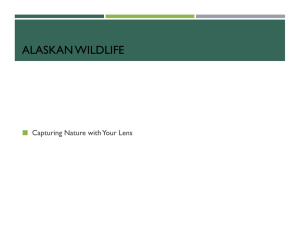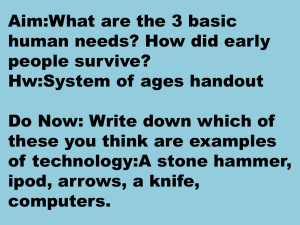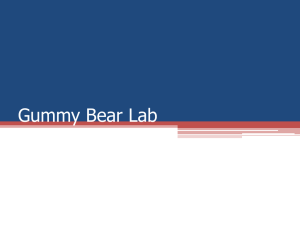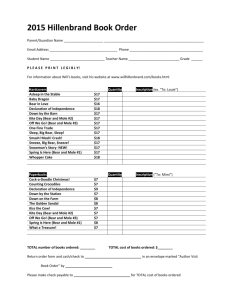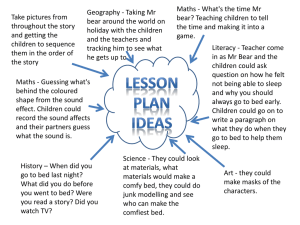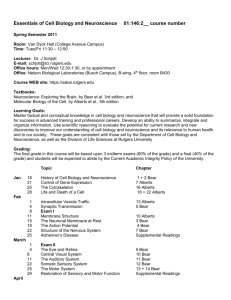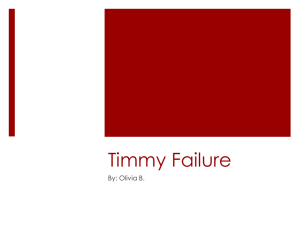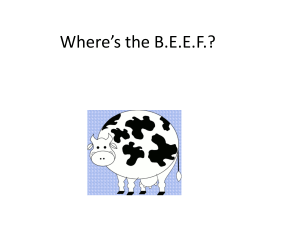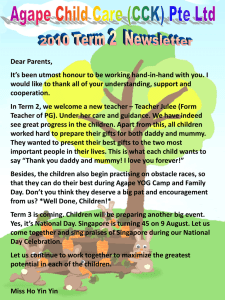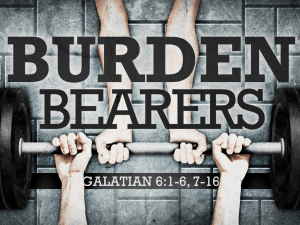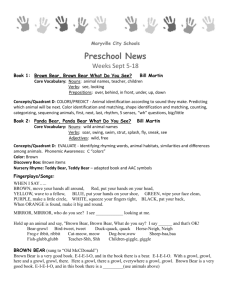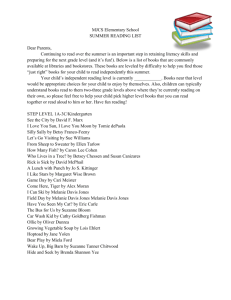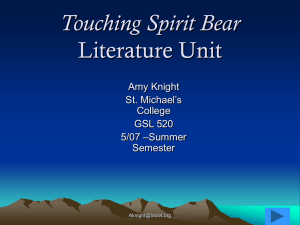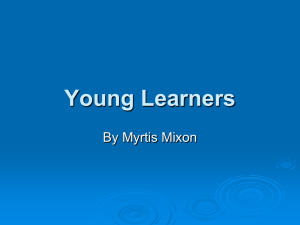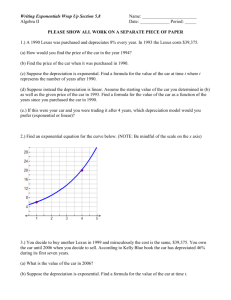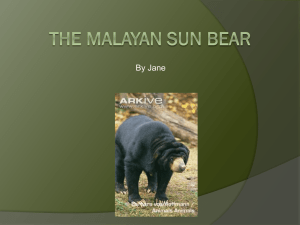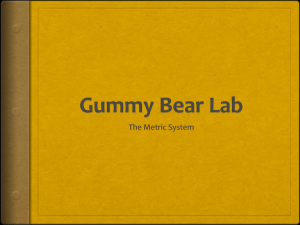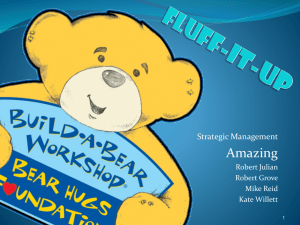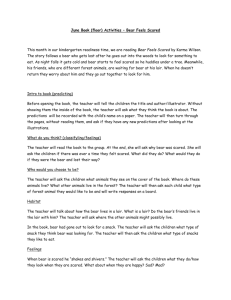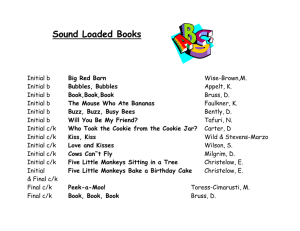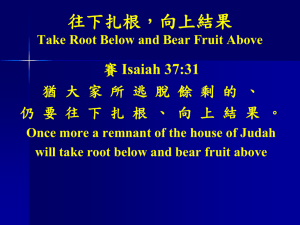Short Answer/Open Response
advertisement
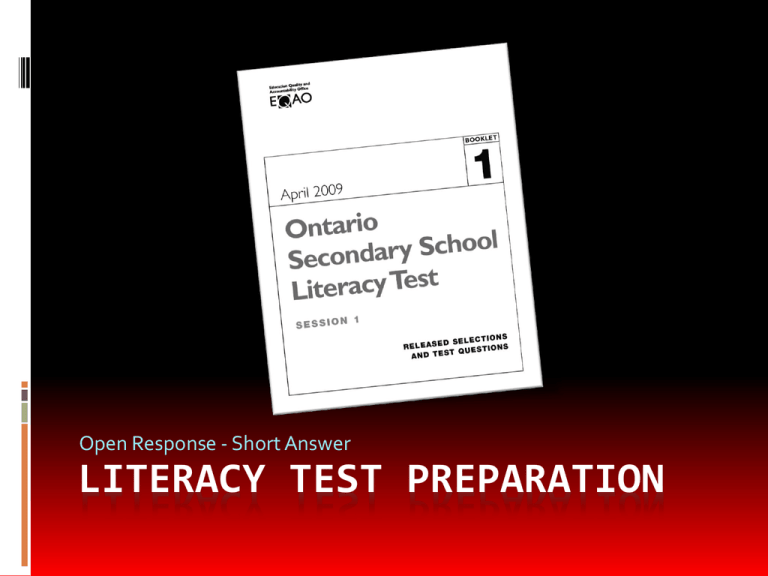
Open Response - Short Answer LITERACY TEST PREPARATION Types of Reading Materials Information Paragraph- presents ideas and information on a topic Graphic Text- presents ideas and information with the help of graphic features such as diagrams, photographs, drawings, sketches, patterns, timetables, maps, charts or tables News report- presents information in the form of a news story Real-life narrative- presents an account of a significant time in an individual’s Dialogue- presents a conversation between two or more people What do the text based readings look like? Readings are typically 1-2 pages in length Each paragraph is numbered for easy reference to questions The readings include a picture or graphic related to the text Open Response Question Explain how a train can be similar to a bear. Use information from the text and your own ideas to support your answer. TRAIN BEAR Picture it How do I think that a bear and train can be similar? •Big •Powerful •Travels slowly •Dangerous •Both are found in Canada How do my ideas connect to the reading? The train is called Little Bear, like a bear the train is big, slow-moving, but powerful Answer to Open Response Question Little Bear, the train in Northern Ontario, is like a real bear. Both are big and powerful. Both travel slowly through the wilderness and both can be dangerous to people if they get too close. However, they are both important to Canada. Your Reading For Today: Helpful Tips For Writing - Open Response These used to be called “Short Answers” but answers were found to be too short. These Open Responses may be tied to any of the Readings which will be the Information Paragraph, News Report, Dialogue, Real-life Narrative or Graphic Text. (Remember ALL these readings will be on the test) You are given 6 lines to answer. The answer should be a well-developed paragraph. Strategies for Open Response Questions Always answer these questions in 3 to 5 full sentences Read the entire question and underline key words, like summarize or explain. These key words tell you how to answer the question. State the main idea of your answer in your first sentence. Write a few more sentences using one or two details from the reading to support your answer. Visualize what you’re trying to answer in your head. WARNING – PAY ATTENTION The lines provided for you outline the expected length of your answers If you write more than the space provided, you will receive a mark of zero on that question Use the rough work areas to help you plan your answer before writing it in the lines provided Write clearly and to the point Your Task: Read the article and answer the following question: Summarize this selection. Include a main idea and one detail that supports it. Use your tips and tricks sheet. This response provides a correct main idea only (“It is one of the most visited museums in the world.”). This response provides a correct main idea (“learn more about Canadian heritage”) which issupported with vague details from the selection (“lots of artifacts for people to see and to get a better idea of what Canadian heritage is”). This response provides a correct main idea (“It is one of the most visited museums in the world.”) which is supported by specific and relevant details from the selection (“1.4 millionpeople visit a year”, “10 million people visit the site”).
